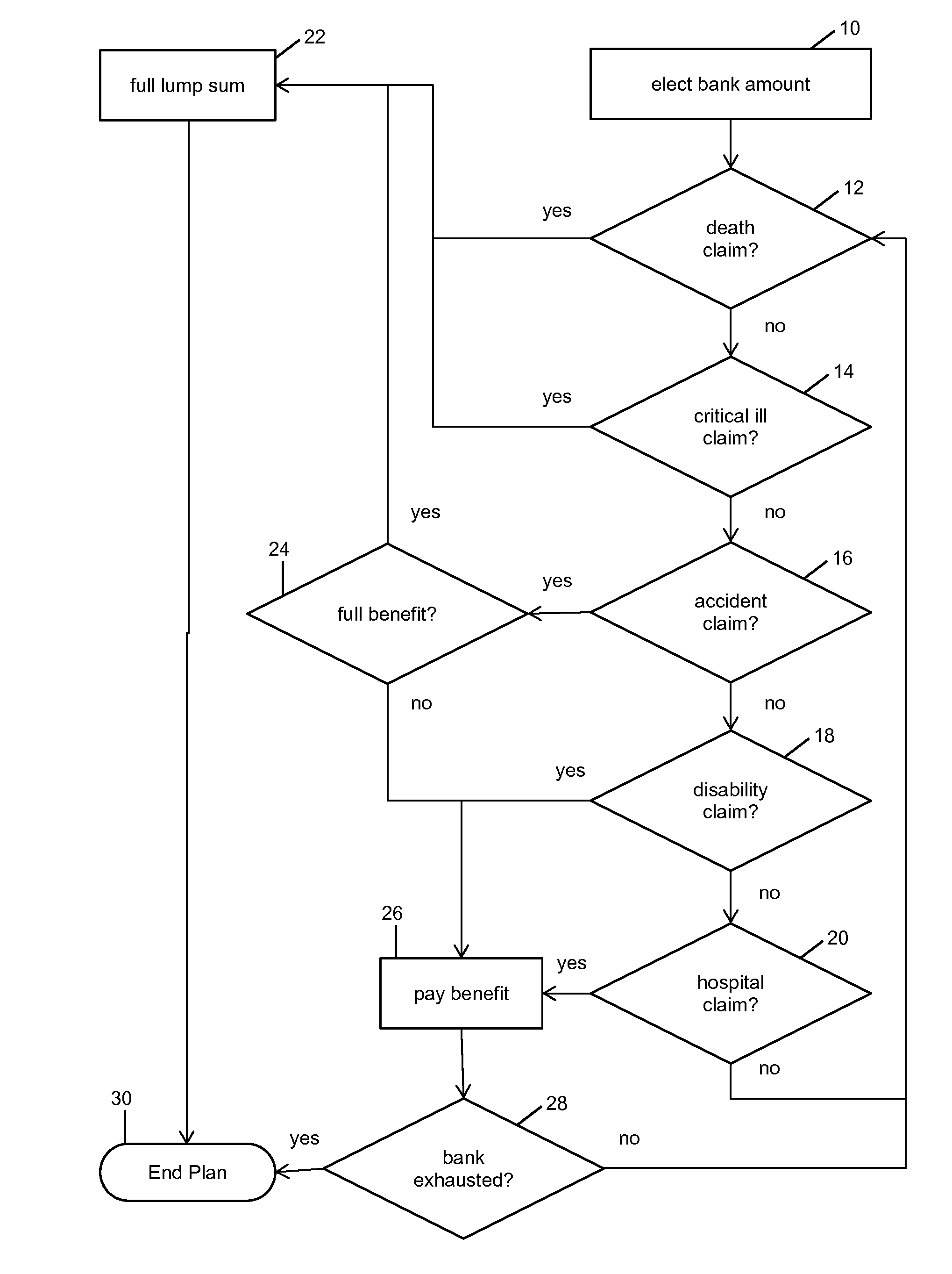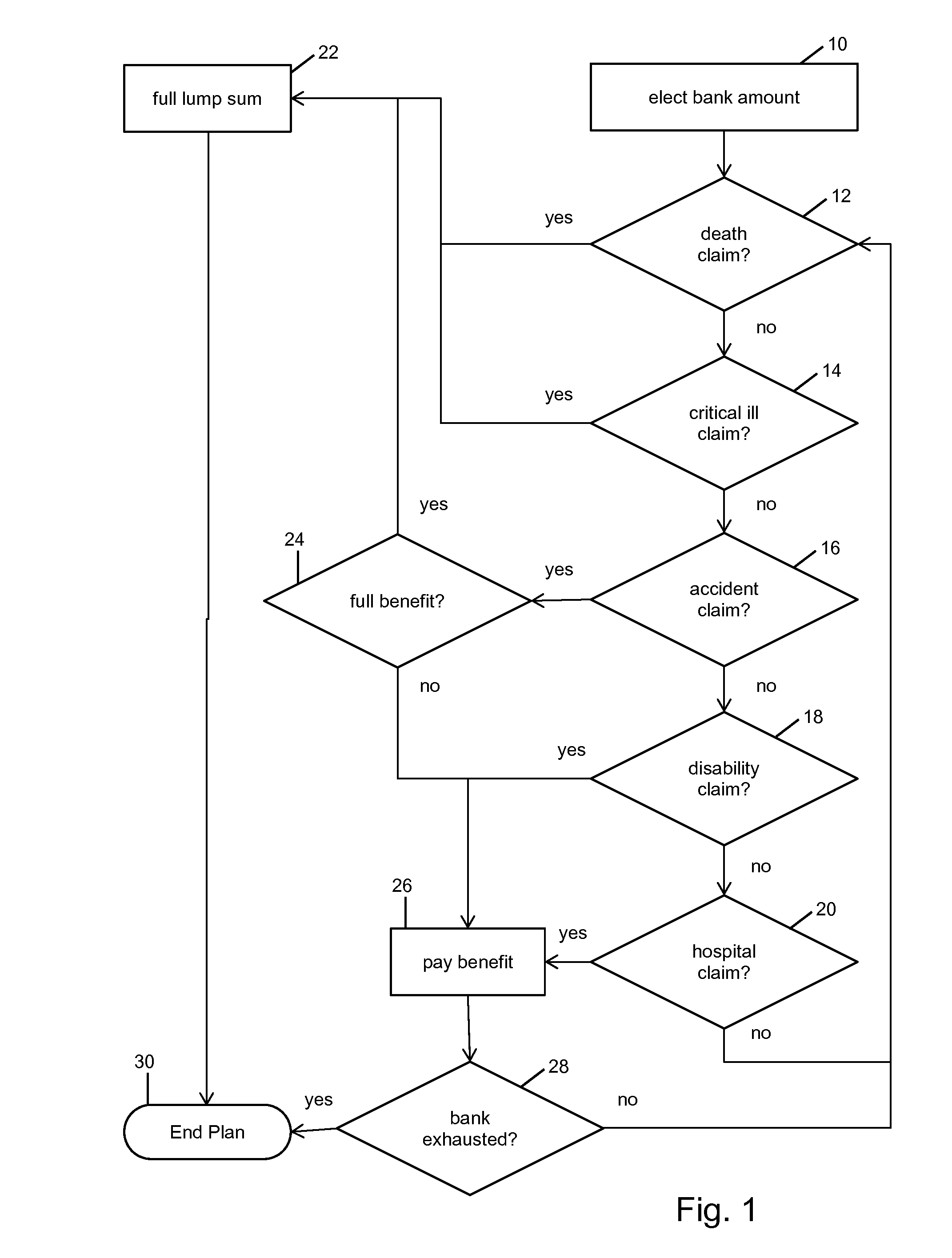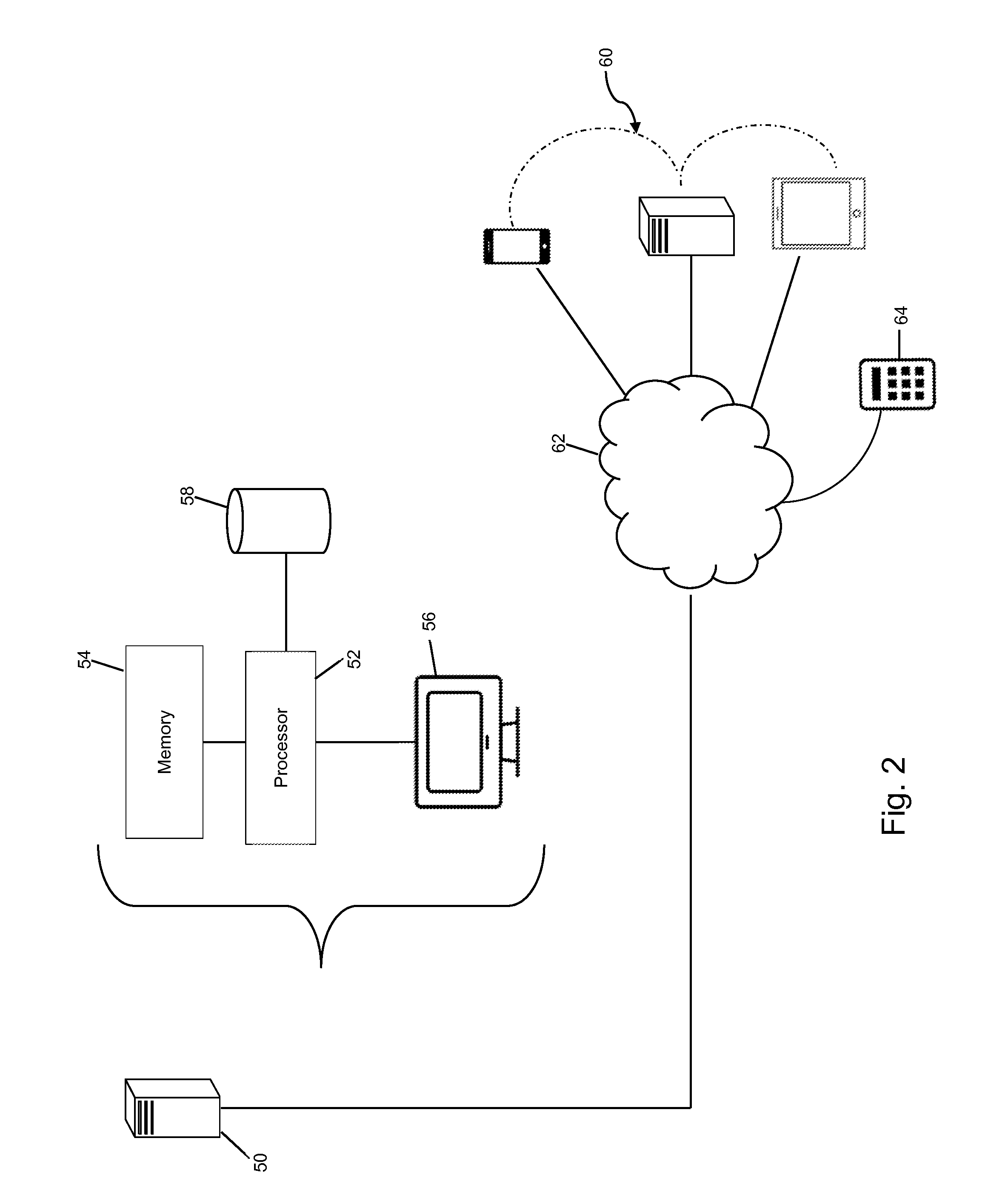Computerized Composite Risk and Benefits Apparatus and Method
a composite risk and benefit technology, applied in the field of computerized composite risk and benefit apparatus and method, can solve the problems of inability to provide support for self-insured, catastrophic health event without any coverage, and inability to purchase policies for limited financial resources, so as to reduce the risk of the plan administrator, reduce the risk of the bank, and reduce the contribution
- Summary
- Abstract
- Description
- Claims
- Application Information
AI Technical Summary
Benefits of technology
Problems solved by technology
Method used
Image
Examples
Embodiment Construction
[0019]Before the present invention is described in further detail, it should be understood that the invention is not limited to the particular embodiments described, and that the terms used in describing the particular embodiments are for the purpose of describing those particular embodiments only, and are not intended to be limiting, since the scope of the present invention will be limited only by the claims.
[0020]According to certain embodiments of the present invention, a benefit plan is presented that is associated with a “bank” of coverage. The use of the term bank is not intended to require that the amount in the bank is literally set aside in the trust on behalf of the insured, since the amount maintained in the trust may be set by applicable law or regulations; instead, this amount is tracked as the maximum benefit to be paid under the plan until the policy is terminated. Each occurrence that results in a benefit payment reduces the amount in the bank by the amount of the be...
PUM
 Login to View More
Login to View More Abstract
Description
Claims
Application Information
 Login to View More
Login to View More - R&D
- Intellectual Property
- Life Sciences
- Materials
- Tech Scout
- Unparalleled Data Quality
- Higher Quality Content
- 60% Fewer Hallucinations
Browse by: Latest US Patents, China's latest patents, Technical Efficacy Thesaurus, Application Domain, Technology Topic, Popular Technical Reports.
© 2025 PatSnap. All rights reserved.Legal|Privacy policy|Modern Slavery Act Transparency Statement|Sitemap|About US| Contact US: help@patsnap.com



